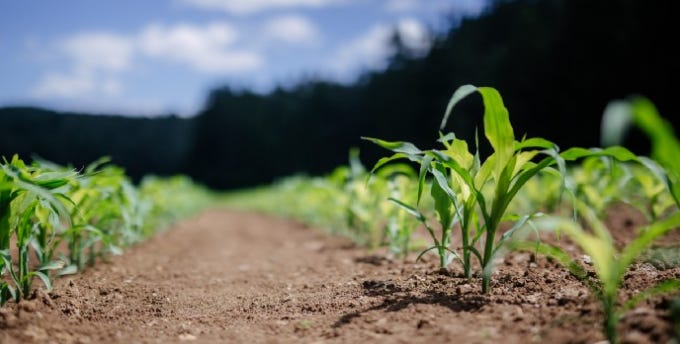Nurture the Soil to Feed the World Chris Cochrane

Image by Adrian Infernus on Unsplash
50 years ago, everyone knew you had to eat your vegetables if you wanted to be big and strong.
Or at the very least, healthy.
18 years ago, a team of scientists from the University of Texas studied nutritional data from 1950 and 1999 for 43 different vegetables and fruits. They discovered steady declines in protein, calcium, phosphorus, iron, riboflavin (vitamin B2) and vitamin C. All key elements to healthy growth. Levels of zinc, magnesium and Vitamins B-6 and E likely all suffered too, but they weren't studied. Other studies done on nutrient levels in vegetables drew the same conclusions in other parts of the world, with calcium levels falling somewhere between 19-27%, iron levels declined 22-37% and Vitamin C fell up to 30%. This means that we have to eat 8 oranges today to get the same amount of Vitamin C that our grandparents got from one orange .
That's crazy!
Now if you want to be healthy, never mind big and strong, you'll have to eat a lot more fruit and vegetables than you ate as a child!
But how did this happen? Where did those nutrients go?
The thing to keep in mind is that 50 years ago, food production looked very different.
Before WWII, farming looked very different too.
Fields were not planted with corn year after year. Tomatoes did not follow a crop of onions. Peas might follow a crop of corn. Manure was spread across the fields after harvest. Perhaps a crop like clover would be planted, allowed to grow for a time and then purposely plowed under so that the soil would benefit.
But after the war, companies that had specialized in chemical warfare had all these chemicals sitting around. Instead of human warfare, they turned them into weapons of pest destruction.
Pesticides.
They became intense fertilizers that were easy to spread and use. (Never mind that they poisoned the people who worked with them)
Now farmers didn't have to worry so much about crafting work-heavy plans for crop rotation to avoid specific pests. They could plant corn 3 or 4 years in a row, spread pesticides and perhaps get a jump on their neighbour. Farmers changed the way they ran their farms to maximize profit while it got harder and harder to make a living from the land. They did what they had to do.
Lobbyists, politicians, seed companies and chemical manufacturers did what they had to do to line their own pockets too. Over time, they collectively made it easier to specialize in one crop to the detriment of the soil and the microorganisms that lived in it.
Most farms are no longer a holistic balance of abundance.
Most industrial farms are strictly controlled by seed copyrights, legal agreements and a frantic dance of competitiveness.
Along the way, the soil has become nearly barren. No longer home to a vast universe of micro-organisms that work to break down plant matter, the dirt in which vast swaths of corn grow are nearly stripped of the minerals healthy plants need. Plants now depend on chemical fertilizers to reach marketable size, even though they have fewer nutrients to supply the bodies that will consume them.
Those same plants depend on chemicals to keep from being prematurely consumed by pests, even though they are now more susceptible than ever to drought. Climate change brings freakishly strong storms, floods and wildfire that no plant has a chance against. But the fields that are not flooded or burned need to be brought back into balance if we are to return to health.
Farms must once again turn back to a balanced approach if we are to feed ourselves properly. If we must eat 5 times the amount of fruit and vegetables that our ancestors did, we might well starve ourselves of nutrients while adhering to the food guides our governments release.
If we want to be healthy enough to withstand what the future will throw at us, we need to eat better.
To feed our people better, we must return to feeding the soil.
Feed the soil, feed the people.
Source: https://braceyourself.substack.com/p/feed-the-soil-feed-the-people
Posting Komentar untuk "Nurture the Soil to Feed the World Chris Cochrane"